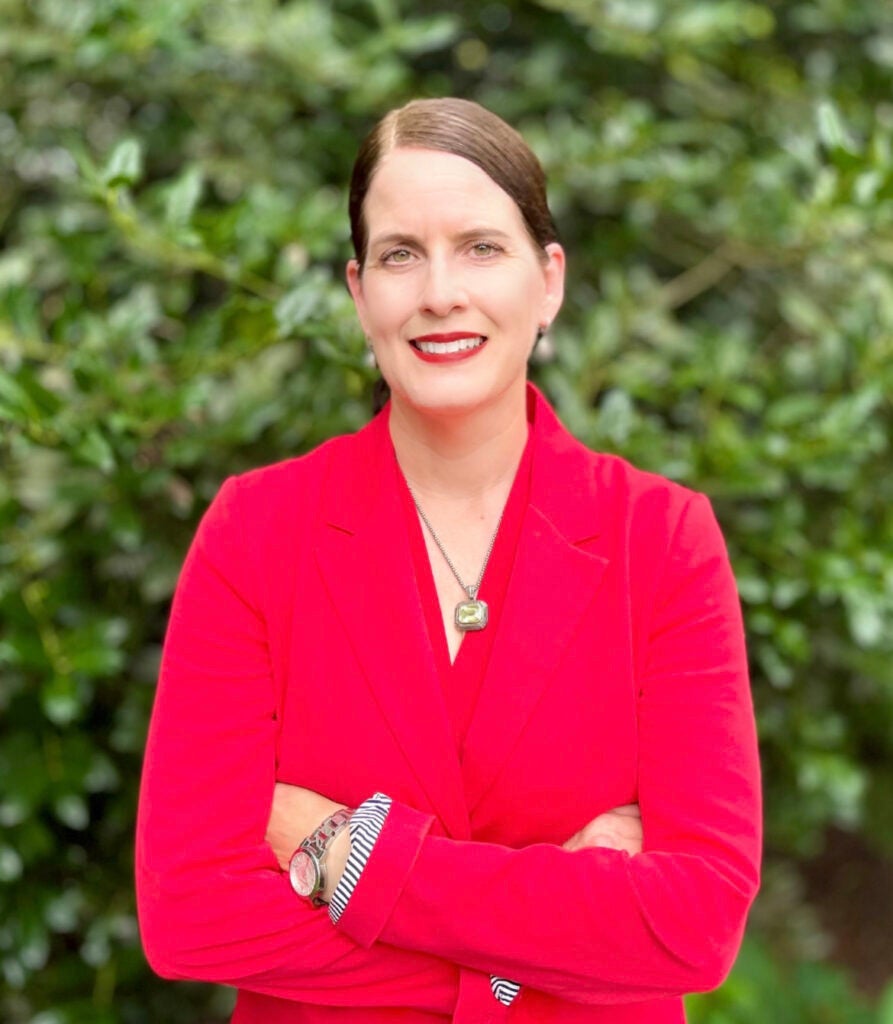CCT Welcomes the Arrival of New Faculty Member, Laura DeNardis

The Communication, Culture, and Technology program is delighted to announce that Laura DeNardis, Ph.D., a world renowned scholar in the field of technology, society, and internet governance has joined the program as a Professor.
DeNardis will additionally be the Endowed Chair of Technology, Ethics, and Society in the College of Arts & Sciences, a Research Professor in the Center for Digital Ethics , and additionally will be a member of the steering committee for the Georgetown Initiative on Technology and Society down at the Law center. Quite an undertaking that she is walking into!
Prior to joining Georgetown University and the CCT Program, DeNardis previously taught at American University in the School of Communication, along with holding a variety of other appointments and positions there. She received her Ph.D. in Science and Technology Studies at Virginia Tech and Engineering Degrees from Dartmouth College and Cornell University. Fun Fact, Laura DeNardis is also a classically trained guitarist, so she’s an expert in many fields!
We chatted with DeNardis about her attraction to CCT, her research interests, and how she sees herself fitting in with our interdisciplinary focus.
What attracted you to CCT and to Georgetown?
It’s an honor to join CCT and Georgetown, an institution quickly establishing itself as the premiere university for interdisciplinary research and teaching on the societal implications of technology. The Department of Communication, Culture and Technology is such an important part of this. I’m also thrilled to be joining the innovative and school-wide Georgetown Initiative on Technology & Society and especially the newly launched Center for Digital Ethics, which will contribute to this cross-university initiative by combining researchers from computer science, law, data science, the social sciences and humanities to advance frameworks and solutions for digital technologies for the betterment of humanity.
Where has your research focused over the years?
My research primarily examines the political implications of Internet design and governance. My seven books on this topic include the Global War for Internet Governance (Yale Press), The Internet in Everything: Freedom and Security in a World with No Off Switch (Yale Press); and a recent edited volume on Researching Internet Governance: Methods, Frameworks, Futures (MIT Press), among others. I am also a policy-engaged scholar and have enjoyed serving in a number of American and international leadership roles such as Research Director of the Global Commission on Internet Governance, Executive Director of the Yale Information Society Project, advisor on international communication policy at the State Department, and a member of the Council on Foreign Relations.
What peaked your interest in this particular field?
Because all of society, healthcare, the economy, and the political sphere are digitally mediated, it’s difficult to view the stability and security of digital systems as anything less than a great human rights issue of our time. After completing a graduate engineering degree, I started my career designing computer networks and large-scale information technology and cybersecurity systems. It became clear early on that technical design decisions have profound political and social implications. Design and governance conflicts over these technologies mediate almost every issue of importance in society from privacy, speech, and equality to economic stability and national security. One characteristic that distinguishes my work is my background in engineering, as well as law, science, and technology studies. Understanding the structures of the political requires understanding the structures of the technical. This is exciting work because of the significant public policy consequences of contentious debates over technology.
What are some of your current research projects?
All of my current research projects are addressing the societal implications of emerging communication technologies. The first is researching the human security implications of quantum communication design and standardization. The second is an examination of the intersection between technical infrastructure and disinformation, both how infrastructure mediates disinformation and, especially, how disinformation now targets technical infrastructure itself rather than merely targeting human content. The third is a project of anticipatory governance, theorizing and anticipating the public policy issues of the Interplanetary Internet, an international effort to extend the Internet into the solar system for the good of humanity. I’m also in the final stages of a co-authored book project called Politics at the Internet’s Core, about the history of geopolitical struggles over the Internet Protocol.
What courses will you be teaching at CCT?
Georgetown students viscerally recognize in their own lives how arrangements of technical infrastructure are also arrangements of power. The evolution of digital technologies and the governance of these technologies will profoundly shape their lives. I look forward to teaching courses across the disciplines that help students explore topics such as the politics of emerging technologies; technology and democracy; global Internet governance; and cybersecurity and society.
Do you have a message to CCT students?
As scholars interested in studying the impact of technology on society, and society on technology, I view CCT students as the leaders of the future poised to shape the constitution of our digital world. I can’t wait to meet you!
—————
DeNardis is going to fit right in here at CCT and we are so excited to see the impact that she has on our students.
- Tagged
- Faculty
- Laura DeNardis